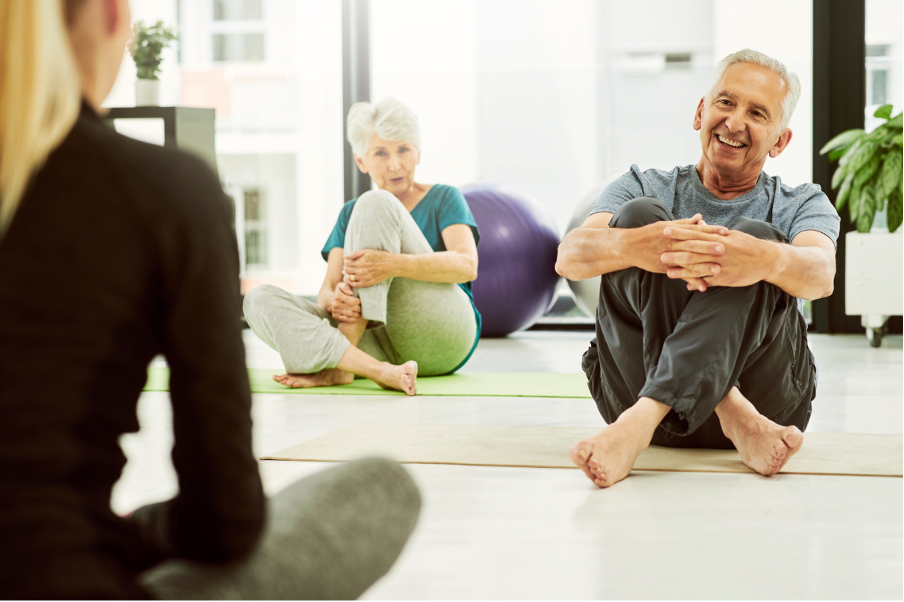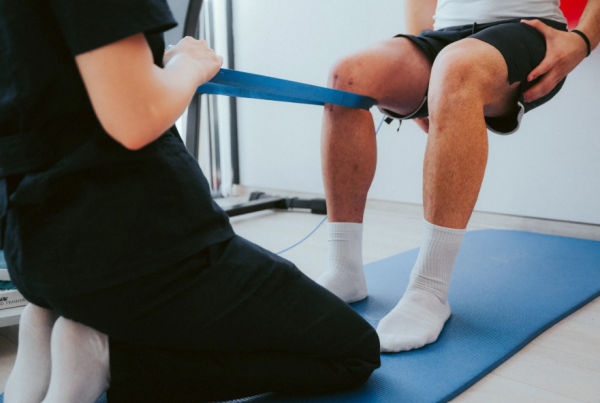There’s absolutely no doubt that physical activity is good for you – research stating that the beneficial nature of physical activity is backed up with “irrefutable” evidence. That’s a pretty serious statement if you ask us…
With this in mind, it’s no surprise that the pharmaceutical world is trying to develop an “exercise pill”. Literally – a pill that aims to elicit many of the benefits of regular physical activity. It was bound to happen eventually! Exercise is magic after all, who wouldn’t want a dose of that?
We personally find the concept a bit hard to swallow (pun intended). The benefits of being physically active really are endless, and multi-factorial! How could anyone pack all that goodness into a single pill? We wish you luck, big pharma!
Here are some of the benefits of ACTUAL exercise. You make your own mind up…
Protecting against chronic disease
Chronic health conditions such as cardiovascular disease, diabetes mellitus and cancer are forever on the rise in the world we’re living in. Not only do they cost the economy billions of dollars, but they also rob us of years of life, and impact on our quality of life. Inactivity (i.e. living a sedentary lifestyle) is what we call a modifiable risk factor for chronic disease. Meaning, of all the risk factors people possess that lead to chronic disease – many of which are outside of our control – activity is one that is fully within our control. How empowering is that?
Regular activity provides a host of physiological adaptations that reduce our likelihood of chronic disease. It improves blood lipid profiles, helps maintain a healthy body composition, lowers blood pressure, improves glucose management via insulin sensitivity, reduces inflammation (this is a big one!), reduces circulating free radicals and many more…
This list does give us some insight into the lure of an exercise pill. Just imagine if your doctor could prescribe something that does ALL of these things! Would you want in?
Boosts mood and mental health
Now, this is where things get (more than) a little tricky with the proposed pharmaceutical approach, because we wholeheartedly believe that no pill will ever elicit the psychological benefits that physical activity does. Physical activity is scientifically proven to reduce stress, anxiety and depression. Not only that, but it is continuously shown to increase resilience, confidence and overall quality of life.
Some of these benefits are directly related to things that happen within the body, such as the positive influence on hormone profiles, release of endorphins, improved sleep and energy processes. Many of the mental health benefits we get from physical activity however are intangible – not things we can delegate to chemicals. These include the social benefits we get from attending a gym class or the added perks of being in nature on our afternoon walk. They also include the feelings of self-efficacy and confidence we get from taking control of our health and/or time… And the resilience we build by learning that we can try, and succeed with, challenging tasks!
We see these mental health benefits time and time again with clients we work with; the feedback we receive highlighting that this is what people most value about exercise programs, whether or not mental health was a goal in the first place.
Being able to do the things we love
One of the components that makes up our initial assessments with clients is called a patient specific functional scale (PSFS) – we ask clients, “What would you like to be able to do at the end of this program, that you currently cannot?”. Throughout this conversation, we see our clients’ interest spark as they ponder upon the enabling powers of exercise. THEN over the length of the program, we see these ponderings come to life as exercise enables them to do those very things!
Those of us who have experienced injury, illness – or even nationwide lockdowns – know the lows that come with not being able to do the things that bring value to our lives. If we look at this in a long-term sense, aging (especially when chronic conditions come into play) often means that we lose the ability to do many things. Physical activity is arguably one of the best ways to maintain this ability to do things; both through the prevention of chronic disease as outlined above, and the more obvious functional benefits such as maintaining fitness, strength and flexibility.
Many of the answers to our PSFS question include things like getting back on surfboards and golf courses, being able to pick up and play with children/grandchildren and even regaining the confidence to spend time with friends.
“Time spent on your health is an investment, not an expense!”
We know this time of year gets busy and as modern day humans, we are drawn to the glowing efficiency of a quick fix. However, as far as physical activity goes, we are of the opinion that you need to do the work to reap the rewards. Pass on the exercise pill, thanks!
Let this article be that angel on your shoulder that gently nudges you towards exercise – and encourages you to get your dose the old fashioned way.
Author: Tessa Nielsen Editor: Yolanda van Vugt Clinical Exercise Physiologist and Content Creator at Specialised
#exercisephysiology #exerciserehab #rehabilitation #lifeinsurance #incomeprotection #ctp #workcover #mobile #mobileexercisephysiology #fatigue #mentalhealth #cancer #musculoskeletal #injury #pain #physio #physiotherapy #Sydney #Brisbane #Melbourne #Adelaide #Auckland #Waikato #BayofPlenty #Wellington #Otago #Christchurch



